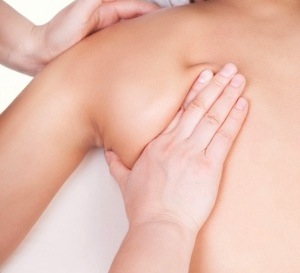Flu Season and the Effects of Massage on the Immune System
30-Dec-2013
The Centers for Disease Control announced this week that a new, potent strain of the norovirus has been identified as rapidly spreading across the U.S. This ‘superbug’ stomach influenza is 50 times more contagious than previously identified versions of the strain. The symptoms are often the same as other strains of the flu: muscle aches, fever, headaches, soreness, and stomach upset. While flu vaccines have been been appropriated widely in the last decade and are being updated each year, there is no guarantee that the shot will provide any efficacy considering the speed with which the virus mutates (Researchers at the Univeristy of Arkansas referenced in publications at the Harvard Medical School state the efficacy rate of flu vaccines between 23 and 38% depending on age). The bug is spread through sneezing and coughing and while older flu strains can last up to a few hours on surfaces, the new norovirus, sometimes referred to as the Sydney strain, can stay alive on surfaces up to 4 weeks. Also, about 1,000 particles of previous strains were needed to infect the average person, the newer norovirus seems especially potent requiring only about 18 particles.
Prevention
The washing of one’s hands regularly with soap and water is still the best prevention for exposure. Anti-bacterial soaps are not effective on viruses and may actually be contributing to other infectious health issues. Household bleach is the best disinfectant for norovirus.
Once exposed, your best line of defense is your body’s own immune system, which can vary greatly depending on age, genetics and other factors. Making good health-oriented lifestyle choices can strenthen your body’s ability to fight the pathogen in the early stages of exposure:
- Avoid or moderate alcohol and tobacco
- Eat a diet high in vegetables and fruits and low in saturated fats
- Exercise regularly
- Learn techniques to manage stress levels
Massage and the Immune System
Researchers recently completed a comprehensive study at Cedars-Sinai’s Department of Psychiatry and Behavioral Neurosciences, the first study to be conclusive (and backing up previous smalller studies) in the connection between massage and the body’s immune system. Mark Rapaport, M.D., chairman of the department stated “People often seek out massage as part of a healthy lifestyle but there hasn’t been much physiological proof of the body’s heightened immune response following massage until now.” The study concludes that vigorous massage (beyond light touch) significantly changes the numbers in lymphocytes and white blood cells, decreases Arginine Vasopressin (AVP), decreases levels of the stress hormone cortisol and a notable decrease in most cytokines produced by stimulated white blood cells. This points to building a heightened neuroendocrine functionality, and thus a stronger immunity toward disease.
Rod Cain is owner/operator of
Rod Cain Massage Burlington Vermont